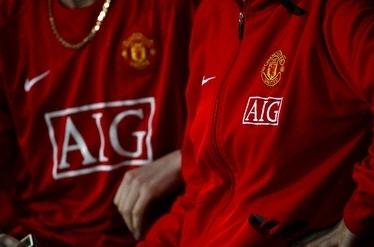| Tweet |

http://ameblo.jp/warm-heart/entry-10142079312.html から転載。 2008-09-21 19:04:04 私たちの目から見たら、リーマン・ブラザーズは倒れるがままにしておいたが、AIGも同様に放置しておけば金融機関がたちまち次々と連鎖的に倒れていくと恐怖に駆られ、結局場当たり的に救済に乗り出しただけのこと。本質的には何の解決にもなっていないので、これからも場当たり的な救済措置をドタバタとあわてふためいてとり続けなければならないだろう。双子(貿易収支と国家予算)の赤字を抱えるアメリカにとって、果たしていつまで体力が持つのだろうか?かつてのアジア通貨危機を対岸の火事視していた付けが今来ていることが、アメリカという裸の王様には分かっていない。アメリカの軍事的一国支配は今しばらく続くかもしれないが、経済的にはもうそろそろ限界に来ているのではあるまいか? そうなると必然的に、日本も一刻も早い自立が求められていくことになるだろう、アメリカと心中したくないならば。 ============================================= http://www.afpbb.com/article/economy/2519830/3360418 米政府のAIG救済はダブルスタンダードか?アジア通貨危機と比較 【9月21日 AFP】1997-98年のアジア通貨危機の際、米政府は、資金不足の企業を救済しようとしているとしてアジア各国政府を非難した。だが、米政府は今月、世界的な金融危機で経営破たんした自国の企業に対し救済措置をとった。この動きをダブルスタンダードと見る専門家もいる。 米連邦準備制度理事会(Board of Governors of Federal Reserve System、FRB)は16日、資金繰りが悪化している米保険最大手アメリカン・インターナショナル・グループ(American International Group、AIG)の破たんを回避するため、AIGの株式約80%を担保に850億ドル(約9兆円)のつなぎ融資に応じると発表。同日の世界の株式市場は急落した。 今年これまでに米政府は、投資銀行大手ベアー・スターンズ(Bear Stearns)や、米連邦住宅抵当公庫(ファニーメイ、Fannie Mae)と米連邦住宅貸付抵当公社(フレディマック、Freddie Mac)の破たん回避のため巨額の公的資金を投入している。 アジア通貨危機の際、米政府と国際通貨基金(International Monetary Fund、IMF)は、アジア各国の政府に対し経営不振企業をいわば見殺しにするよう指示した。米政府の今回の救済策は、当時の対応と対照的だとするエコノミストもいる。 18日のニューヨーク・タイムズ(New York Times)は、アジア通貨危機当時、韓国に200億ドルを融資する条件として経営不振の銀行や企業を救済せず、そのまま破たんさせるようIMFが指示したという、当時IMFとの交渉に深く関わった韓国のエコノミストYung Chul Park氏の話を伝えた。 現在ソウル(Seoul)の高麗大学(Korea University)教授のPark氏は、米国の金融危機は世界全体が影響を受け、1地域だけが影響が受けたアジア通貨危機の時とは異なるが、「米政府は、今回は当時とは違うシナリオに従っている」と述べた。 世界の金融システムの保護は不可避なことだとして米国の救済措置を積極的に擁護する専門家もいる。米ワシントンD.C.(Washington D.C.)のピーターソン国際経済研究所(Peterson Institute for International Economics)のアジア専門家、ニコラス・ラーディー(Nicholas Lardy)氏は、「AIGが破たんしていたら、主に欧州の銀行が大きな影響を受けていただろう。米国はAIGの破たんを回避することで世界に対する大きな役割を果たした」と説明する。「今、我々が目の当たりにしているのは、世界の金融システムの中心にある企業だ」とアジア通貨危機との違いを強調した。 ラーディ氏また、全米第4位の証券会社リーマン・ブラザーズ(Lehman Brothers)が経営破たんしたことを挙げ、米財務省は無差別な企業救済を目指しているわけではないことを指摘した。 (c)AFP/P. Parameswaran ============================================= AFP通信配信の英文記事はこちら ⇒ http://uk.news.yahoo.com/afp/20080919/tbs-us-finance-banking-asia-crisis-8cc5291.html Does financial bailout show US double standards? WASHINGTON (AFP) - The United States criticized Asian economies for attempting to bail out cash-starved companies during a regional financial crisis a decade ago -- yet now throws a lifeline to its own companies ravaged by a credit crisis, a move experts say smacks of double standards. In a bid to avert bankruptcy, the US Federal Reserve, the country's central bank, pumped a 85 billion dollars to bail out America's largest insurer AIG on Tuesday, sending global markets in a tailspin that continues to reverberate Thursday. Earlier, Americans saw up to a 200 billion dollar federal rescue of financially-stricken mortgage giants Fannie Mae and Freddie Mac, and a nearly 30 billion dollar injection to prevent a default by investment bank Bear Stearns. The moves to rescue them, some economists say, contrasted with the approach the United States and the International Monetary Fund took during the 1997-98 Asian financial crisis, when the region was told to let inefficient corporation bleed to death. "I guess some of the pundits in Washington arguing against government money being used (to bail out local companies) in Asia at that time are now basically calling for various government intervention," noted Raghuram Rajan, the chief economist at the International Monetary Fund between 2003 and 2006. "Well, it's when it hits you that you realize what other countries were experiencing," he told AFP in a telephone interview from the University of Chicago, where he resumed teaching after the IMF stint. "It's all very well to say, 'Let the financial system go, let it find its equilibrium,'" he said. "But when it is in the face of speculative attacks and prices are being hammered and it looks like the larger institutions are going to collapse, it is pretty natural for the government to step in and say, 'We can't let this happen.'" When the IMF pledged 20 billion dollars to help South Korea survive the Asian crisis, it was on condition that Seoul allowed ailing banks and other companies to collapse rather than bail them out, economist Yung Chul Park, who was deeply involved in the talks with the IMF, was quoted saying in the New York Times on Thursday. Now a professor of economics at Korea University in Seoul, he said that while the US crisis was different -- it is global rather than restricted to one region like Asia -- "Washington is following a different script this time." Unlike the US crisis, which was triggered largely by a rapidly inflated real estate, the Asian turmoil stemmed from a collapse of currencies of several economies, whose banks had taken enormous risk financing investments using foreign currency-denominated loans. Indonesia, Thailand and South Korea used the bulk of their currency reserves attempting to prop up their exchange rates after investors fled. More than 100 billion dollars of loans were arranged by the IMF for them to cover their foreign exchange denominated debt. But some experts defended the US bailout, saying it was inevitable to save the global financial system. "I think the United States has done a tremendous service to the rest of the world in preventing the collapse of AIG because the main losers in an AIG collapse would have been European banks," said Nicholas Lardy, an Asian expert at the Washington-based Peterson Institute for International Economics. "You are looking at institutions that lie at the heart of the global financial system," he said, comparing the crisis to the Asian turmoil. The US Treasury, he said, did not pursue a blanket bailout policy, noting that it had allowed Lehman Brothers, America's fourth-largest securities firm, to file for bankruptcy -- a move that produced the worst day on Wall Street in seven years sending global markets in a tailspin. Some US experts also doubted the perception that Washington was against Asian governments stepping in to save their companies during the regional turmoil. "Although there was a debate inside the US government and the IMF how best to do those kinds of interventions, I don't think there was ever a position that there was never a need for a government to stand by its domestic banks," said Brad Setser, who was at the US Treasury during the crisis. He cited the "large recapitalization" then of domestic financial systems using public resources in Thailand, South Korea and Indonesia. The IMF bailouts were also backed by the United States, a principal contributor to the Fund's capital, said Setser, now with the Council on Foreign Relations, a think tank in New York. Washington, he said, may have pushed Asian governments against cutting "special favour deals" and to make sure that the bailouts were based on more explicit deposit insurance and in ways where equity investors took losses.
gataro-cloneの投稿
米政府のAIG救済はダブルスタンダードか?アジア通貨危機と比較(AFPBB News)
テーマ:世界の動き
2008年09月21日 16:24 発信地:ワシントンD.C./米国 
英マンチェスター(Manchester)のオールド・トラフォード(Old Trafford)のスタジアムで、スポンサーのアメリカン・インターナショナル・グループ(American International Group、AIG)のロゴのついたシャツを着たマンチェスター・ユナイテッドの選手たち(2008年9月17日撮影)。(c)AFP/PAUL ELLIS
2003-06年にIMFの主任エコノミストを務めたラグラム・ラジャン(Raghuram Rajan)氏は、「当時、米国がアジア(の地元企業の救済)に融資することに反対していた米政府の一部の専門家も、今回は基本的に政府の多様な介入を求めている」と指摘。「『市場に任せて、自然に落ち着くところに落ち着かせよう』と言うのは誠に結構なことだが、投機的な売りに押されて大企業の株価が急落して破たんの危機が迫れば、『そのようなことはあってはならない』と政府が介入するのは至極もっともだ」と語った。
By P.ameswaran AFP - Friday, September 19 04:17 am
|
|
|
|
投稿コメント全ログ コメント即時配信 スレ建て依頼 削除コメント確認方法
|
|
 題名には必ず「阿修羅さんへ」と記述してください。
題名には必ず「阿修羅さんへ」と記述してください。
掲示板,MLを含むこのサイトすべての
一切の引用、転載、リンクを許可いたします。確認メールは不要です。
引用元リンクを表示してください。
|
|
|
|
|
|
|
|